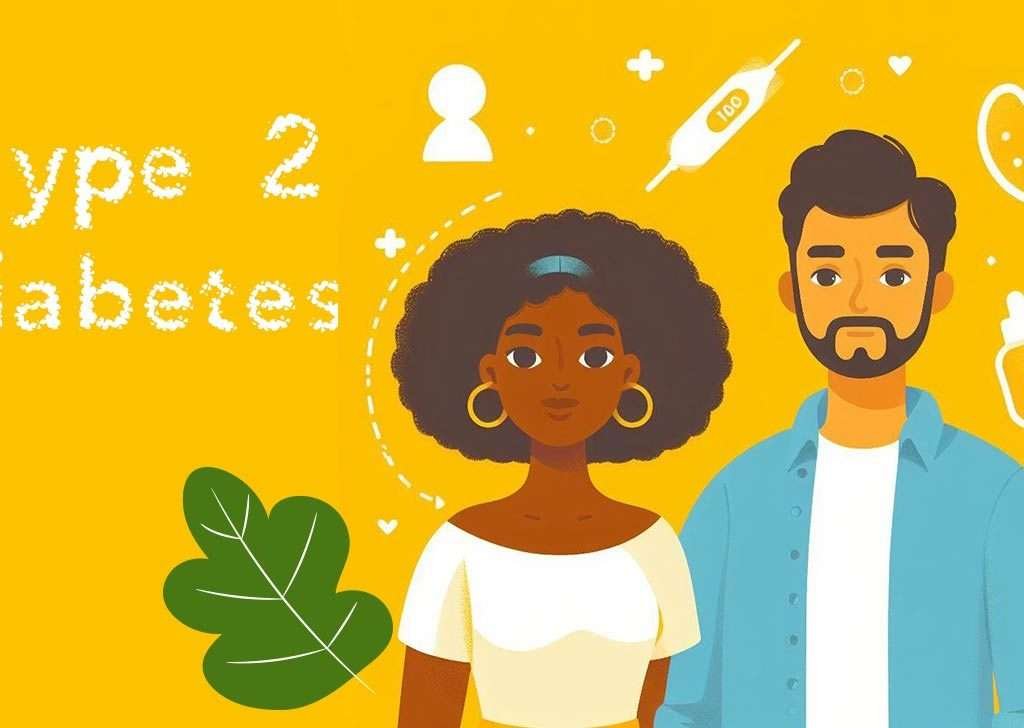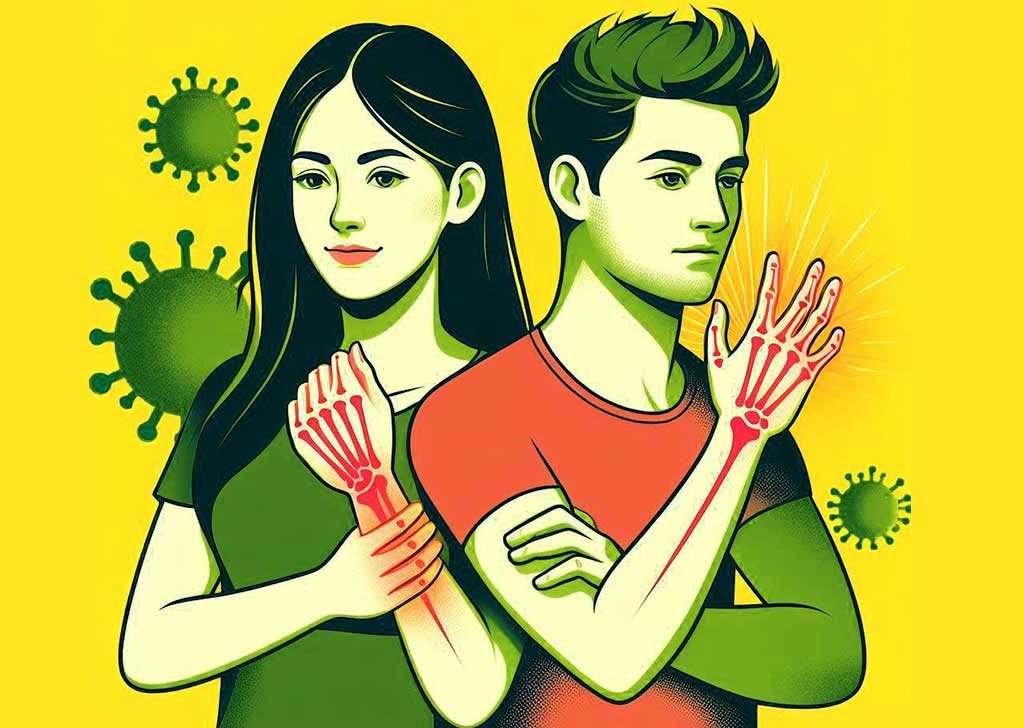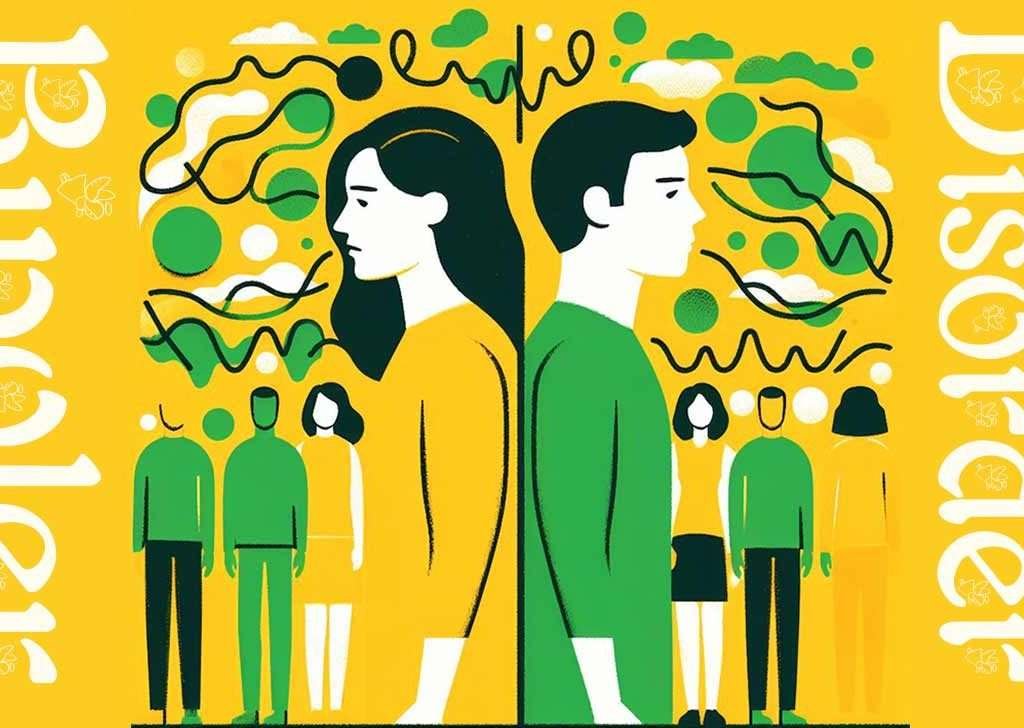Dehydration and its connection to high blood pressure is a topic of significant interest in both medical and health communities. While dehydration is commonly associated with heat exhaustion, kidney problems, and general bodily discomfort, its role in cardiovascular health, particularly in contributing to elevated blood pressure (hypertension), is not always fully understood by the general public. This comprehensive essay will explore the relationship between dehydration and high blood pressure in-depth, offering insights into the physiological mechanisms, risk factors, prevention, and management strategies.
can dehydration cause high blood pressure?
1. Definition of Dehydration
Dehydration occurs when the body loses more fluids than it takes in, resulting in insufficient water to carry out normal bodily functions. Water is critical for maintaining cellular health, balancing electrolytes, regulating temperature, and ensuring proper organ function. When the body becomes dehydrated, it cannot perform these functions effectively, leading to a range of physiological issues.
2. Causes of Dehydration
Dehydration can result from a variety of causes, including but not limited to:
- Insufficient Water Intake: A primary cause of dehydration is not drinking enough fluids to replace the body’s natural loss of water.
- Increased Fluid Loss: Excessive sweating due to exercise, exposure to high temperatures, fever, vomiting, or diarrhea can all lead to dehydration.
- Illnesses: Certain medical conditions such as diabetes, kidney diseases, or adrenal gland disorders can lead to dehydration.
- Diuretic Use: Certain medications, such as diuretics (commonly used for hypertension), increase urine output, potentially leading to dehydration if not balanced with proper hydration.
3. Symptoms of Dehydration
Dehydration symptoms can range from mild to severe, depending on the extent of fluid loss. Early symptoms include:
- Dry mouth and lips
- Thirst
- Dark yellow or decreased urine output
- Fatigue
- Headache
- Dizziness or lightheadedness
In severe cases, dehydration can lead to:
- Rapid heartbeat
- Low blood pressure
- Confusion or irritability
- Fainting or unconsciousness
Chronic dehydration, where the body is consistently underhydrated over a long period, may contribute to more serious conditions, including the potential for hypertension.
High Blood Pressure (Hypertension): Definition, Causes, and Symptoms
1. Definition of High Blood Pressure
Blood pressure is the force of blood pushing against the walls of arteries as the heart pumps blood. Hypertension, or high blood pressure, occurs when this force is consistently too high. The condition is typically diagnosed when systolic blood pressure (the pressure when the heart beats) is greater than 130 mmHg, and/or diastolic blood pressure (the pressure when the heart is at rest between beats) is greater than 80 mmHg.
2. Causes of High Blood Pressure
Hypertension can develop from a variety of causes, including:
- Lifestyle Factors: Poor diet (high in sodium), lack of exercise, obesity, and chronic stress are major contributors to high blood pressure.
- Genetics: Family history plays a significant role in predisposition to hypertension.
- Medical Conditions: Kidney disease, hormonal imbalances, and cardiovascular conditions can contribute to elevated blood pressure.
- Medications: Certain medications, including nonsteroidal anti-inflammatory drugs (NSAIDs), birth control pills, and some antidepressants, can raise blood pressure.
3. Symptoms of High Blood Pressure
High blood pressure is often referred to as a “silent killer” because it typically presents with no obvious symptoms until it reaches a more advanced stage. When symptoms do appear, they may include:
- Headaches
- Shortness of breath
- Dizziness
- Chest pain
- Vision problems
If left untreated, hypertension can lead to serious health complications, including heart disease, stroke, and kidney failure.
The Physiological Relationship Between Dehydration and Blood Pressure
To understand how dehydration can lead to high blood pressure, it’s important to examine the physiological changes that occur when the body is dehydrated.
1. Blood Volume Reduction
One of the first effects of dehydration is a reduction in blood volume. When the body loses water, the overall volume of blood circulating through the body decreases. This drop in volume means there is less blood available to carry oxygen and nutrients to organs and tissues. The heart compensates for this by pumping harder to maintain adequate circulation, which can lead to an increase in blood pressure.
2. Activation of the Renin-Angiotensin-Aldosterone System (RAAS)
The Renin-Angiotensin-Aldosterone System (RAAS) is a hormone system that regulates blood pressure and fluid balance. When the body becomes dehydrated, the kidneys detect a decrease in blood volume and blood flow. In response, they release renin, an enzyme that triggers a cascade of hormonal reactions leading to the production of angiotensin II, a powerful vasoconstrictor (narrowing of blood vessels). Angiotensin II raises blood pressure by:
- Causing blood vessels to constrict, increasing resistance and thus raising blood pressure.
- Stimulating the release of aldosterone from the adrenal glands, which signals the kidneys to retain sodium and water to help restore blood volume. However, this retention of sodium can also contribute to higher blood pressure.
Thus, dehydration indirectly causes an increase in blood pressure through the activation of the RAAS system.
3. Increased Viscosity of Blood
When the body loses water, the concentration of electrolytes and other solutes in the blood becomes more concentrated, making the blood thicker (more viscous). Increased blood viscosity means that the heart has to work harder to pump blood through the circulatory system, which can lead to a rise in blood pressure. Thickened blood also flows more slowly through the arteries, increasing the risk of clots and cardiovascular problems.
4. Impaired Kidney Function
Dehydration can also impair kidney function, which is critical for maintaining healthy blood pressure levels. When the kidneys are deprived of sufficient fluid, they cannot effectively remove excess sodium and waste products from the bloodstream. This retention of sodium increases blood volume and, consequently, blood pressure. Over time, chronic dehydration can cause long-term kidney damage, further exacerbating hypertension.
5. Vascular Stiffness
Proper hydration helps to keep blood vessels flexible and resilient. However, when the body is dehydrated, blood vessels can become less pliable, leading to increased resistance to blood flow. Stiff, constricted blood vessels are a significant contributor to high blood pressure, as the heart has to pump harder to move blood through the narrowed vessels.
Scientific Studies Linking Dehydration and Hypertension
Several studies have investigated the relationship between dehydration and elevated blood pressure. Research shows that even mild dehydration can lead to measurable increases in blood pressure:
1. Short-term Effects of Dehydration on Blood Pressure
A study conducted by Shirreffs and Maughan (1994) examined the effects of dehydration on cardiovascular function during exercise. They found that dehydration led to a significant increase in both systolic and diastolic blood pressure. This was attributed to a combination of reduced blood volume and the activation of the RAAS system.
2. Long-term Effects of Chronic Dehydration
Research also suggests that chronic dehydration may contribute to long-term hypertension. A study published in the Journal of Hypertension (2012) found that individuals who were chronically dehydrated (as measured by plasma osmolality) were more likely to have high blood pressure than those who were adequately hydrated. The study concluded that maintaining proper hydration may be an effective strategy for preventing or managing hypertension.
3. Hydration and Blood Pressure in Elderly Individuals
Dehydration is particularly common in elderly individuals, who may have a reduced sense of thirst and are more prone to fluid loss due to medications or health conditions. A study in the American Journal of Medicine (2008) found that dehydration was a significant risk factor for elevated blood pressure in older adults. Proper hydration was shown to lower systolic blood pressure by an average of 10-15 mmHg in this population.
Other Risk Factors That May Exacerbate Dehydration-Induced Hypertension
While dehydration itself can lead to high blood pressure, other risk factors may exacerbate this relationship:
1. High Sodium Intake
A high-sodium diet is one of the most well-known risk factors for hypertension. Dehydration can compound the effects of excess sodium, as the body retains more sodium in an attempt to conserve water. This can lead to increased blood volume and elevated blood pressure.
2. Sedentary Lifestyle
A sedentary lifestyle contributes to both dehydration and hypertension. Physical inactivity slows circulation and can lead to weight gain, a major risk factor for high blood pressure. Additionally, people who do not exercise regularly may not be as attuned to their body’s hydration needs.
3. Caffeine and Alcohol Consumption
Both caffeine and alcohol are diuretics, meaning they increase urine output and can lead to dehydration if fluid intake is not adequately replenished. Chronic dehydration from excessive caffeine or alcohol consumption can increase blood pressure, especially in individuals already predisposed to hypertension.
Prevention and Management of Dehydration-Related Hypertension
1. Hydration Strategies
Maintaining proper hydration is key to preventing dehydration-related increases in blood pressure. Here are some effective hydration strategies:
- Drink Water Regularly: Adults should aim to drink at least 8-10 cups (64-80 oz) of water per day, or more depending on individual needs.
- Monitor Urine Color: Light yellow or pale urine is a good indicator of adequate hydration. Dark urine suggests dehydration.
- Rehydrate During and After Exercise: Exercise increases fluid loss through sweat, so it’s important to replenish fluids during and after physical activity.
- Avoid Excessive Diuretics: Limiting alcohol, caffeine, and other diuretics can help reduce fluid loss.
2. Dietary Modifications
A balanced diet can help manage both dehydration and hypertension:
- Reduce Sodium Intake: Limiting sodium can prevent fluid retention and reduce the risk of high blood pressure.
- Increase Potassium-Rich Foods: Potassium helps counteract the effects of sodium and promotes better fluid balance. Foods like bananas, spinach, and sweet potatoes are high in potassium.
- Eat Hydrating Foods: Consuming fruits and vegetables with high water content, such as cucumbers, watermelon, and oranges, can help maintain hydration levels.
3. Medical Management
For individuals who are already managing hypertension, it’s important to work with a healthcare provider to balance hydration and blood pressure management. In some cases, medication adjustments may be necessary:
- Diuretics and Dehydration: People taking diuretics for high blood pressure should monitor their hydration levels closely to avoid dehydration. In some cases, alternative medications may be prescribed.
- Regular Monitoring: Regularly checking blood pressure and staying vigilant about hydration can help prevent spikes in blood pressure related to dehydration.
Conclusion
In conclusion, dehydration can indeed contribute to high blood pressure through various physiological mechanisms such as reduced blood volume, activation of the renin-angiotensin-aldosterone system (RAAS), increased blood viscosity, and impaired kidney function. Understanding these mechanisms and recognizing the importance of hydration in blood pressure management is crucial for preventing and controlling hypertension.
Preventive strategies such as maintaining adequate hydration, reducing sodium intake, and leading a healthy lifestyle can help mitigate the risk of dehydration-induced hypertension. For those already managing high blood pressure, proper hydration should be a key component of their overall treatment plan. By prioritizing hydration and making mindful lifestyle choices, individuals can support their cardiovascular health and reduce the risk of long-term complications associated with both dehydration and high blood pressure.
How to Increase Blood Pressure Quickly at Home?
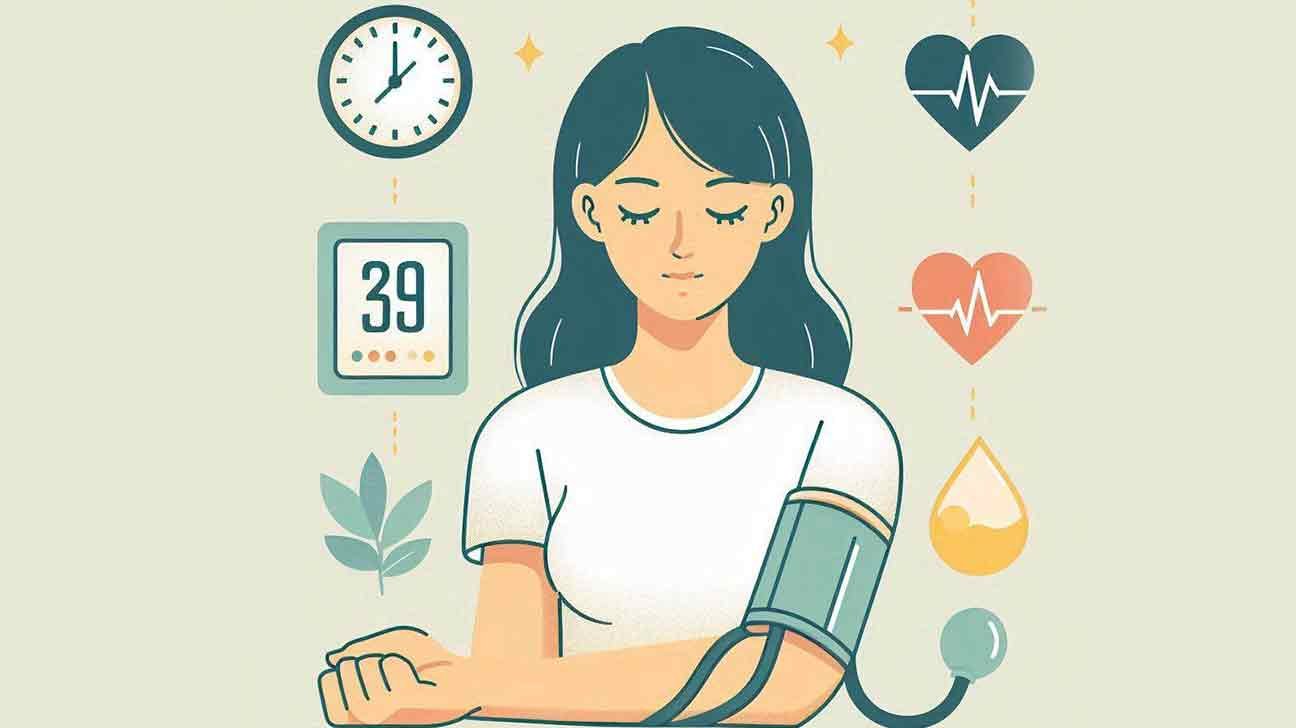
To increase blood pressure quickly at home, drink more water and consume salty snacks. Also, lie down with your legs elevated.
Low blood pressure can cause dizziness and fainting. It’s essential to address it promptly. Dehydration often leads to low blood pressure, so drinking water helps. Salt retains water in the body, thus increasing blood volume. Elevating legs improves blood flow to the heart and brain, raising blood pressure.
Quick interventions at home can stabilize your condition. Remember, these are temporary measures. Persistent low blood pressure needs medical attention. Consulting with a healthcare professional ensures proper treatment. Implementing these tips can provide immediate relief. Always prioritize your health and safety.
Increase Blood Pressure Quickly
Understanding Blood Pressure
Introduction paragraph about How to Increase Blood Pressure Quickly at Home and Understanding Blood Pressure…
Understanding your blood pressure is key to maintaining good health. Blood pressure is the force that moves blood through your arteries. It’s measured in millimeters of mercury (mmHg) and recorded with two numbers: systolic and diastolic. The systolic number represents the pressure in your blood vessels when your heart beats. The diastolic number represents the pressure when your heart rests between beats. Normal blood pressure is around 120/80 mmHg.
Blood pressure changes throughout the day. It can be affected by various factors such as stress, diet, and physical activity. Low blood pressure, also known as hypotension, is when your blood pressure is lower than 90/60 mmHg. Symptoms of low blood pressure include dizziness, fainting, and fatigue.
Keeping your blood pressure within a normal range is crucial. Low blood pressure can lead to inadequate blood flow to your organs. This can cause serious health problems. High blood pressure, or hypertension, can damage your arteries. This increases the risk of heart disease and stroke.
Common Causes Of Low Blood Pressure
There are several reasons why blood pressure might drop. Dehydration is a common cause. Not drinking enough water can reduce blood volume, leading to low blood pressure. Another cause is a poor diet. Lack of essential nutrients like iron and vitamin B12 can lower blood pressure. Certain medications and medical conditions can also contribute.
Table: Symptoms Of Low Blood Pressure
| Symptom | Description |
|---|---|
| Dizziness | Feeling lightheaded or unsteady |
| Fainting | Temporary loss of consciousness |
| Fatigue | Feeling unusually tired or weak |
| Blurred Vision | Seeing unclear or fuzzy images |
Steps To Increase Blood Pressure Quickly
To quickly raise your blood pressure, try these tips:
- Drink more water: Hydrate to increase blood volume.
- Eat salty snacks: Sodium can help raise blood pressure.
- Wear compression stockings: They help prevent blood from pooling in your legs.
- Small frequent meals: Eating smaller portions more often can help maintain blood pressure.
Understanding blood pressure and knowing how to manage it can improve your overall health. Always consult with a healthcare professional before making any changes to your health regimen.
Causes Of Low Blood Pressure
Introduction paragraph about How to Increase Blood Pressure Quickly at Home and Causes of Low Blood Pressure…
Low blood pressure, or hypotension, can lead to symptoms like dizziness, fatigue, and fainting. Understanding the causes of low blood pressure helps in addressing the issue effectively. Various factors contribute to hypotension, and recognizing them can aid in managing your health better.
1. Dehydration
Not drinking enough water can lower your blood pressure. When the body loses more water than it takes in, it leads to dehydration. This causes a reduction in blood volume, resulting in lower blood pressure.
2. Nutritional Deficiencies
Lack of nutrients like iron, vitamin B12, and folic acid can cause anemia. Anemia reduces the number of red blood cells, leading to lower blood pressure.
3. Heart Problems
Heart conditions like bradycardia, heart valve problems, or heart failure can cause low blood pressure. These conditions affect the heart’s ability to pump blood efficiently.
4. Endocrine Issues
Hormonal imbalances due to conditions like Addison’s disease, adrenal insufficiency, or thyroid problems can lower blood pressure. These conditions affect hormone production, impacting blood pressure regulation.
5. Severe Infection (septicemia)
A severe infection can lead to septicemia, which drastically lowers blood pressure. Septicemia causes widespread inflammation, leading to a drop in blood pressure.
6. Blood Loss
Significant blood loss from an injury or internal bleeding can cause a sudden drop in blood pressure. Losing a large amount of blood reduces the volume in the circulatory system, leading to hypotension.
7. Medications
Certain medications can lower blood pressure. These include diuretics, beta-blockers, and drugs for Parkinson’s disease. Always consult your doctor if you suspect your medication is affecting your blood pressure.
8. Severe Allergic Reaction (anaphylaxis)
Anaphylaxis is a severe allergic reaction that can cause a sudden drop in blood pressure. This condition requires immediate medical attention.
9. Lack Of Nutrients
Lack of essential nutrients can lead to low blood pressure. Ensure your diet includes a balance of vitamins and minerals to maintain healthy blood pressure levels.
Symptoms Of Low Blood Pressure
Low blood pressure, or hypotension, can cause a variety of symptoms that can impact daily life. Knowing these symptoms is crucial to addressing the problem quickly. Understanding what to look for can help you take the necessary steps to increase your blood pressure at home effectively.
Low blood pressure can manifest in multiple ways. Recognizing these symptoms can help in timely intervention.
Dizziness And Lightheadedness
Feeling dizzy or lightheaded is a common symptom. This happens because low blood pressure reduces blood flow to the brain. It can cause a sensation of spinning or imbalance.
Fatigue And Weakness
People with low blood pressure often feel extremely tired. Fatigue and weakness result from insufficient blood supply to the muscles and organs. This can make daily tasks difficult.
Blurred Vision
Blurred vision can occur due to low blood pressure. This happens because the eyes are not getting enough blood. You may find it hard to focus on objects clearly.
Rapid Or Shallow Breathing
Low blood pressure can make breathing difficult. Rapid or shallow breathing is a sign your body is trying to get more oxygen. This can make you feel anxious or short of breath.
Cold, Clammy Skin
Cold, clammy skin is another symptom. Low blood pressure affects blood flow to the skin. This can make your skin feel cold and moist.
Fainting
Fainting is a severe symptom of low blood pressure. This happens when the brain doesn’t get enough blood. If you experience fainting, seek immediate medical help.
Table Of Symptoms And Causes
| Symptom | Cause |
|---|---|
| Dizziness | Reduced blood flow to the brain |
| Fatigue | Insufficient blood supply to muscles |
| Blurred Vision | Low blood supply to the eyes |
| Rapid Breathing | Body’s attempt to get more oxygen |
| Cold Skin | Decreased blood flow to the skin |
| Fainting | Severe drop in blood flow to the brain |
Importance Of Maintaining Healthy Blood Pressure
Maintaining healthy blood pressure is crucial for overall well-being. Blood pressure impacts heart health, brain function, and energy levels. Low blood pressure can cause dizziness, fatigue, and fainting. Understanding how to increase blood pressure quickly at home can prevent these issues and ensure a healthier life.
Healthy blood pressure keeps your heart and arteries in good condition. It reduces the risk of heart disease and stroke. People with low blood pressure often feel weak and tired. They may also experience frequent headaches and blurred vision. Correcting low blood pressure helps improve your quality of life.
Maintaining stable blood pressure enhances brain function. It ensures proper oxygen and nutrient supply to the brain. This helps in maintaining focus, memory, and overall cognitive abilities. Low blood pressure can lead to confusion and difficulty concentrating.
Energy levels are directly impacted by blood pressure. Stable blood pressure allows for better oxygen circulation. This boosts energy and stamina. People with low blood pressure often feel lethargic and less active.
Here is a quick comparison of healthy blood pressure versus low blood pressure:
| Healthy Blood Pressure | Low Blood Pressure |
|---|---|
| 120/80 mmHg | 90/60 mmHg or lower |
| Normal energy levels | Fatigue and weakness |
| Good heart health | Increased risk of heart problems |
| Clear thinking | Confusion and dizziness |
How To Increase Blood Pressure Quickly At Home
Drinking plenty of fluids can help increase blood pressure. Dehydration lowers blood volume, leading to low blood pressure. Drink water or sports drinks with electrolytes.
Eating small, frequent meals helps maintain stable blood pressure. Large meals can cause blood pressure to drop. Include salty foods in your diet, like pretzels or pickles, to help raise blood pressure.
Wearing compression stockings can prevent blood from pooling in your legs. This helps maintain blood pressure and reduce dizziness. Elevate your legs when sitting or lying down to improve circulation.
Practicing deep breathing exercises can also help. Slow, deep breaths increase oxygen levels and improve blood flow. This can quickly raise blood pressure and reduce symptoms of low blood pressure.
Lifestyle Changes To Increase Blood Pressure
Maintaining an optimal blood pressure level is crucial for overall health. If you need to increase your blood pressure quickly at home, certain lifestyle changes can help. These changes are simple yet effective. They include adjustments to your diet, hydration habits, exercise routines, and stress management techniques.
Balanced Diet
A balanced diet plays a vital role in managing blood pressure. Consuming nutrient-rich foods can help stabilize your levels.
- Increase salt intake: Salt helps retain water in the body, which can raise blood pressure.
- Eat small, frequent meals: Large meals can cause blood pressure to drop suddenly.
- Include high-sodium foods: Foods like olives, pickles, and canned soups are high in sodium.
- Consume nutrient-rich foods: Foods rich in B12 and folic acid, such as eggs and leafy greens, can help.
Here’s a table summarizing some foods to consider:
| Food | Nutrient |
|---|---|
| Olives | Sodium |
| Eggs | B12 |
| Leafy Greens | Folic Acid |
Hydration
Proper hydration is essential for maintaining healthy blood pressure levels. Dehydration can lead to a drop in blood pressure.
- Drink plenty of water: Aim for at least 8 glasses a day.
- Consume electrolyte-rich drinks: Sports drinks can help replenish lost salts.
- Avoid excessive alcohol: Alcohol can dehydrate the body and lower blood pressure.
- Monitor urine color: Clear or light yellow urine indicates proper hydration.
Staying hydrated ensures that your blood volume is sufficient, which helps maintain blood pressure.
Regular Exercise
Exercise is another effective way to increase blood pressure. It helps improve circulation and strengthens the heart.
- Engage in aerobic exercises: Activities like walking, jogging, and swimming are beneficial.
- Incorporate strength training: Lifting weights can help improve overall cardiovascular health.
- Practice regularly: Aim for at least 30 minutes of exercise, 5 days a week.
- Avoid sudden position changes: Stand up slowly to prevent dizziness and sudden drops in blood pressure.
Here’s a simple exercise routine:
- Warm-up: 5 minutes of brisk walking.
- Aerobic exercise: 20 minutes of jogging.
- Strength training: 5 minutes of light weight lifting.
Reducing Stress
Stress can negatively impact blood pressure. Reducing stress helps maintain stable levels.
- Practice relaxation techniques: Deep breathing, meditation, and yoga can help.
- Engage in hobbies: Activities you enjoy can reduce stress levels.
- Maintain a positive mindset: Positive thinking can improve overall well-being.
- Get enough sleep: Aim for 7-9 hours of sleep each night to help reduce stress.
Here are some relaxation techniques:
- Deep breathing: Inhale slowly for 4 seconds, hold for 4 seconds, exhale for 4 seconds.
- Meditation: Sit quietly for 10 minutes, focusing on your breath.
- Yoga: Practice simple poses like Child’s Pose and Downward Dog.
Dietary Supplements For Increasing Blood Pressure
Increasing blood pressure quickly at home can be achieved through several methods. One effective approach involves using dietary supplements. These supplements can provide a quick boost to your blood pressure levels, ensuring you feel better fast. This section explores some common dietary supplements that can help increase blood pressure quickly.
Salt
Salt is a well-known remedy for low blood pressure. Salt increases blood volume, which in turn raises blood pressure. Here are some ways to incorporate more salt into your diet:
- Add salt to your meals: Sprinkle a bit more salt on your food.
- Drink salty beverages: Try broths or electrolyte drinks.
- Eat salty snacks: Opt for pretzels, salted nuts, or chips.
Here’s a quick table to show how different foods can contribute to your salt intake:
| Food Item | Sodium Content (mg) |
|---|---|
| Pretzels (1 oz) | 352 |
| Salted Nuts (1 oz) | 230 |
| Chicken Broth (1 cup) | 860 |
Caffeine
Caffeine can raise blood pressure by stimulating the cardiovascular system. Drinking caffeinated beverages can provide a quick boost. Consider these options:
- Coffee: A cup of coffee can increase your blood pressure.
- Tea: Both black and green tea contain caffeine.
- Energy drinks: These often have high levels of caffeine.
Caffeine works quickly, so you might feel the effects within 30 minutes. Be cautious, as too much caffeine can lead to other health issues.
Licorice Root
Licorice root is another effective supplement for increasing blood pressure. Licorice root affects cortisol metabolism, which can lead to higher blood pressure. You can consume licorice root in various forms:
- Licorice tea: Brew a cup for a quick boost.
- Licorice candies: Enjoy a small piece of licorice candy.
- Licorice supplements: Available in capsule form at health stores.
Always check with a healthcare provider before taking licorice root, as it can interact with certain medications.
Ginger
Ginger is another supplement that can help increase blood pressure. Ginger improves blood circulation, which can contribute to higher blood pressure levels. Consider these ways to consume ginger:
- Ginger tea: Brew fresh ginger slices in hot water.
- Ginger supplements: Available in capsule form.
- Ginger candies: Chew on crystallized ginger for a quick fix.
Ginger is generally safe, but consuming too much can cause digestive issues. Use it in moderation for the best results.
Natural Remedies To Boost Blood Pressure
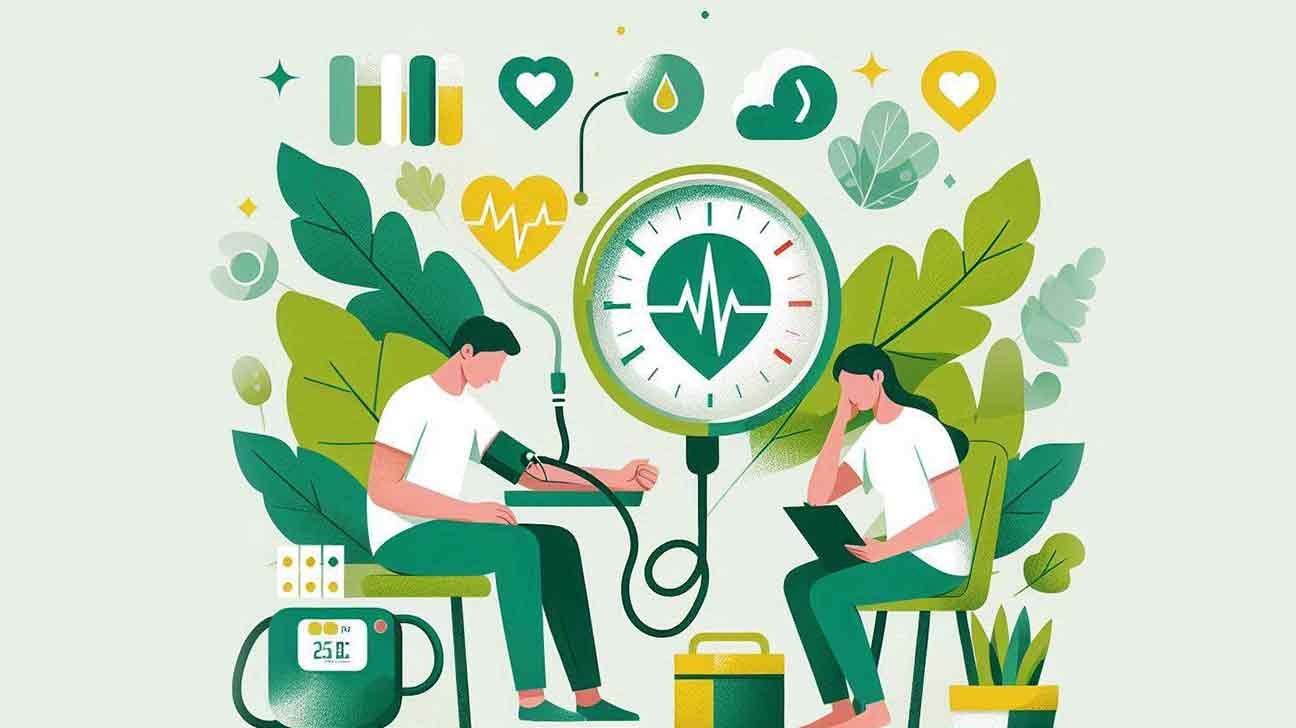
Boosting blood pressure at home can be essential for those dealing with hypotension or low blood pressure. There are several natural remedies that can help increase blood pressure levels quickly and effectively. These remedies are simple and can be easily incorporated into your daily routine. Let’s explore some of these natural methods to boost blood pressure.
Drink More Water
Staying hydrated is crucial for maintaining healthy blood pressure levels. Drinking more water helps increase blood volume, which in turn can raise blood pressure. Here are some tips on how to stay hydrated:
- Drink at least 8 glasses of water daily.
- Carry a water bottle with you at all times.
- Incorporate water-rich foods like cucumbers and watermelon into your diet.
Dehydration can cause blood pressure to drop, so it’s important to drink water regularly. You can also try electrolyte drinks, especially if you’ve been sweating a lot. Electrolytes help maintain the balance of fluids in your body.
Here’s a simple table to show how much water you should drink based on your weight:
| Weight (lbs) | Daily Water Intake (oz) |
|---|---|
| 100 | 50 |
| 150 | 75 |
| 200 | 100 |
Eat Small, Frequent Meals
Eating small, frequent meals can prevent blood pressure from dropping too low. Large meals can cause a sudden drop in blood pressure, so it’s better to eat smaller portions more often. Here are some tips:
- Divide your daily food intake into 5-6 small meals.
- Include a mix of proteins, carbohydrates, and healthy fats in each meal.
- Avoid heavy, high-carb meals that can cause blood sugar spikes and drops.
Try to eat every 3-4 hours to keep your blood sugar and blood pressure stable. Snacking on nuts, fruits, and yogurt can be a good way to maintain energy levels throughout the day.
Here’s an example meal plan for a day:
- Breakfast: Oatmeal with fruits and nuts.
- Mid-Morning Snack: A handful of almonds.
- Lunch: Grilled chicken salad with mixed greens.
- Afternoon Snack: Yogurt with honey.
- Dinner: Baked salmon with quinoa and vegetables.
Increase Sodium Intake
Sodium is essential for maintaining blood pressure levels. Increasing your sodium intake can help raise blood pressure quickly. Here are some ways to add more sodium to your diet:
- Add a pinch of salt to your meals.
- Eat salty snacks like pretzels or salted nuts.
- Include canned soups and broths in your diet.
While increasing sodium can help, it’s important not to overdo it. Too much sodium can lead to other health problems. Monitor your intake and consult with a healthcare professional if needed.
Here’s a table to show the sodium content in common foods:
| Food | Sodium Content (mg) |
|---|---|
| 1 tsp salt | 2300 |
| 1 cup canned soup | 700 |
| 1 oz salted nuts | 180 |
Avoid Alcohol
Alcohol can lower blood pressure, so avoiding it can help maintain healthy levels. Limiting alcohol intake is crucial for those with low blood pressure. Here are some tips:
- Limit alcohol to one drink per day or avoid it entirely.
- Opt for non-alcoholic beverages when socializing.
- Stay hydrated by drinking water alongside any alcoholic drinks.
Alcohol can cause dehydration, which can lower blood pressure even further. By avoiding or limiting alcohol, you can help keep your blood pressure stable.
If you enjoy social drinking, consider these non-alcoholic alternatives:
- Sparkling water with a splash of fruit juice.
- Non-alcoholic beer or wine.
- Herbal teas or flavored water.
Avoiding Hypotensive Triggers
Feeling lightheaded or dizzy can be unsettling. If you need to increase your blood pressure quickly at home, it’s essential to know what to avoid. Avoiding hypotensive triggers can help maintain a stable blood pressure and prevent sudden drops. Let’s explore some common triggers and how to steer clear of them.
Hot Showers And Baths
Hot showers and baths can be relaxing, but they can also lower your blood pressure. The heat causes your blood vessels to expand, which can lead to a drop in blood pressure. To avoid this, try the following tips:
- Use lukewarm water: Opt for lukewarm showers or baths instead of hot ones.
- Limit duration: Keep your showers and baths short to prevent prolonged exposure to heat.
- Stay hydrated: Drink water before and after to maintain fluid levels in your body.
Additionally, consider using a shower chair if you feel dizzy while standing. This can help prevent falls and injuries. By making these small adjustments, you can enjoy your showers and baths without worrying about a sudden drop in blood pressure.
Standing Up Quickly
Standing up quickly can cause a sudden drop in blood pressure, leading to dizziness or fainting. This is known as orthostatic hypotension. Here are some ways to avoid this:
- Stand up slowly: Take your time when moving from a sitting or lying position to standing.
- Flex your legs: Flex and extend your legs a few times before standing up to promote blood flow.
- Hold on to something: Use a stable object for support as you stand up.
These simple steps can help you avoid the unpleasant effects of orthostatic hypotension. Remember, slow and steady wins the race when it comes to changing positions.
Excessive Heat
Excessive heat can cause your blood pressure to drop. Whether it’s a hot day or you’re in a warm indoor environment, it’s important to stay cool. Follow these tips to avoid the negative effects of heat:
- Stay indoors: Stay inside during the hottest parts of the day.
- Use fans or air conditioning: Keep your living space cool with fans or air conditioning.
- Wear light clothing: Dress in lightweight, breathable fabrics.
- Drink water: Stay hydrated to help maintain your blood pressure.
By taking these precautions, you can reduce the risk of heat-related drops in blood pressure and enjoy your day comfortably.
Certain Medications
Certain medications can lower your blood pressure. If you are taking medication, it’s important to be aware of their effects. Here are some common medications that can cause hypotension:
| Medication Type | Examples |
|---|---|
| Diuretics | Lasix, Hydrochlorothiazide |
| Beta-blockers | Atenolol, Metoprolol |
| Antidepressants | SSRIs, Tricyclics |
If you’re taking any of these medications, talk to your doctor about your symptoms. They may adjust your dosage or suggest alternatives. Never stop taking medication without consulting your doctor first. Being mindful of your medication can help you avoid unexpected drops in blood pressure.
When To Seek Medical Help
Maintaining healthy blood pressure is essential for overall well-being. Sometimes, blood pressure can drop too low, causing dizziness, fainting, or shock. While there are home remedies to raise blood pressure quickly, it’s crucial to know when to seek medical help. This section will guide you on recognizing the signs that require professional intervention.
Knowing when to seek medical help can save lives. Low blood pressure, or hypotension, can sometimes indicate severe health issues. Here are critical signs to watch out for:
Severe Symptoms
Watch for severe symptoms such as chest pain, shortness of breath, or severe headache. These may signal a more serious condition. If you experience any of these, seek medical help immediately.
Persistent Low Blood Pressure
Persistent low blood pressure that doesn’t improve with home remedies requires medical attention. If you continue to feel dizzy, weak, or faint, consult a healthcare provider.
Associated Conditions
Low blood pressure linked with other conditions like diabetes, heart disease, or neurological disorders needs monitoring. Talk to your doctor if you have these conditions and experience low blood pressure.
Sudden Drop In Blood Pressure
A sudden drop in blood pressure can be dangerous. If you notice a rapid decline, especially after standing up, seek immediate medical help.
| Symptom | Action |
|---|---|
| Chest pain | Seek emergency help |
| Severe headache | Contact a doctor |
| Shortness of breath | Visit the ER |
| Persistent dizziness | Schedule a doctor’s visit |
Medication Side Effects
Certain medications can lower blood pressure. If you suspect your medication is causing low blood pressure, consult your doctor. They may adjust your dosage or prescribe a different medication.
Unexplained Symptoms
Unexplained symptoms like fatigue, confusion, or blurred vision can be a sign of hypotension. If these symptoms persist, see a healthcare provider.
By recognizing these signs and seeking timely medical help, you can manage low blood pressure effectively and ensure your safety.
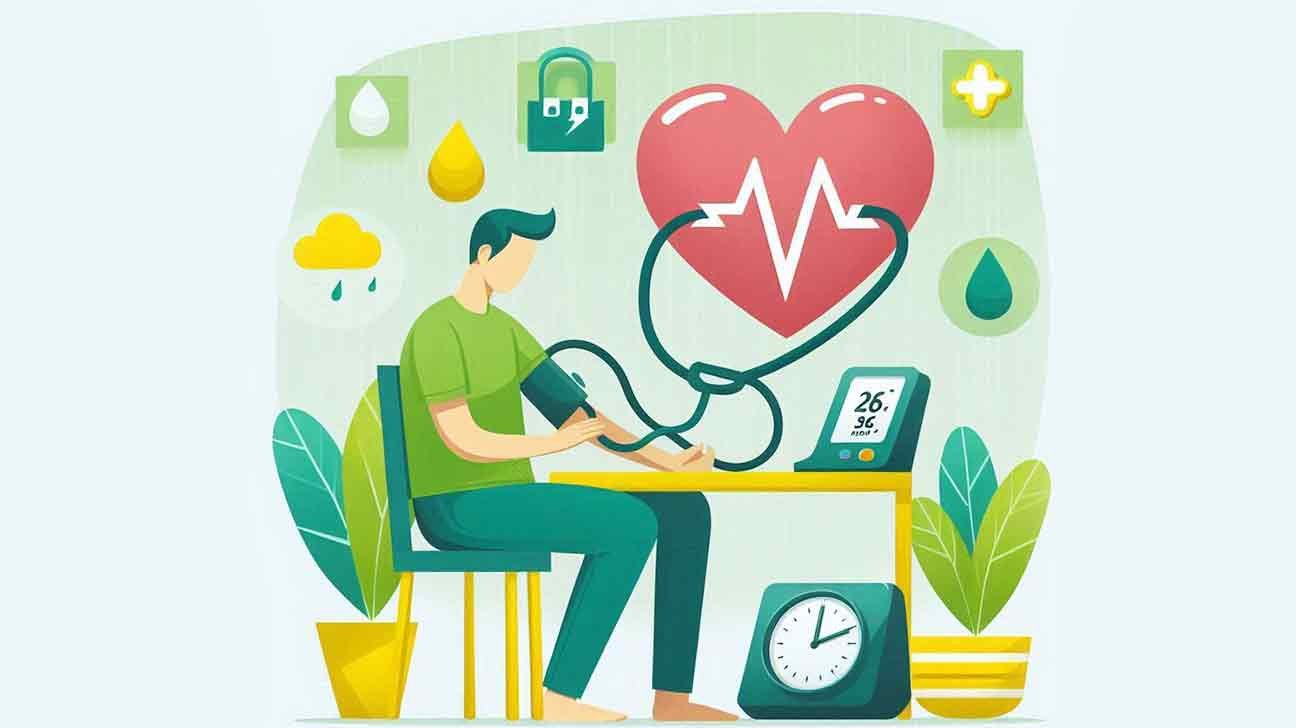
Frequently Asked Questions
How Can I Raise My Blood Pressure Asap?
Consume more salt, drink plenty of fluids, and wear compression stockings. Eat small, frequent meals. Avoid alcohol.
What Can Immediately Raise Blood Pressure?
Consuming salty foods, caffeine, or alcohol can quickly raise blood pressure. Stress, anxiety, and intense exercise also contribute.
What Makes Blood Pressure Go Up Quickly?
Stress, high salt intake, caffeine, smoking, and certain medications can quickly raise blood pressure. Lack of physical activity and dehydration also contribute.
What To Eat If You Have Low Blood Pressure?
Eat salty foods, drink plenty of water, and consume small, frequent meals. Include foods like olives, pickles, and broth-based soups.
What Foods Raise Blood Pressure Quickly?
Salty snacks, canned soups, and processed meats can quickly raise blood pressure due to their high sodium content.
Can Caffeine Increase Blood Pressure?
Yes, caffeine from coffee, tea, and energy drinks can temporarily increase blood pressure levels.
How Does Dehydration Affect Blood Pressure?
Dehydration can lower blood volume, leading to a drop in blood pressure. Staying hydrated helps maintain normal levels.
Is Salt Effective For Low Blood Pressure?
Yes, consuming salty foods or adding salt to meals can help increase blood pressure in the short term.
Can Stress Influence Blood Pressure Levels?
Yes, stress triggers the release of hormones that can increase heart rate and blood pressure.
How Does Exercise Affect Blood Pressure?
Moderate exercise can increase blood pressure temporarily, but regular physical activity helps maintain healthy levels.
Conclusion
Boosting your blood pressure quickly at home can be simple and effective. By following these tips, you can achieve quick results. Always consult with a healthcare provider for personalized advice. Remember, maintaining a balanced lifestyle is key to long-term health.
Stay informed and take proactive steps for your well-being.

